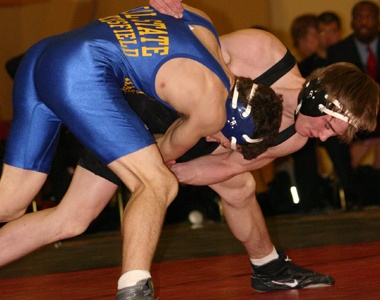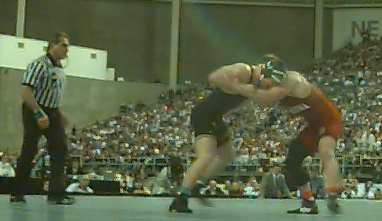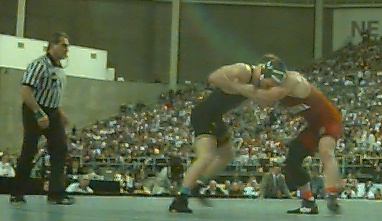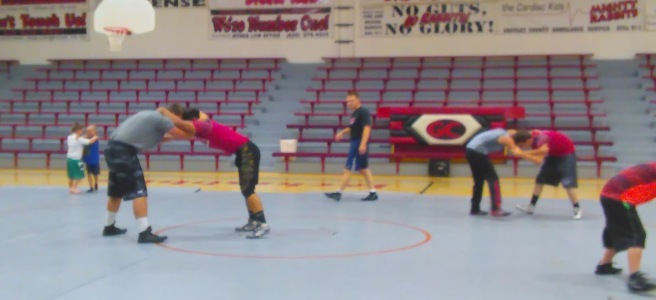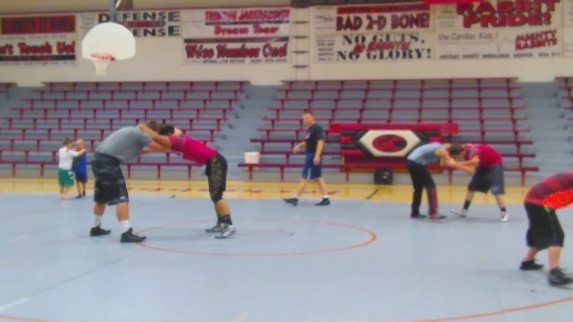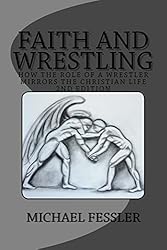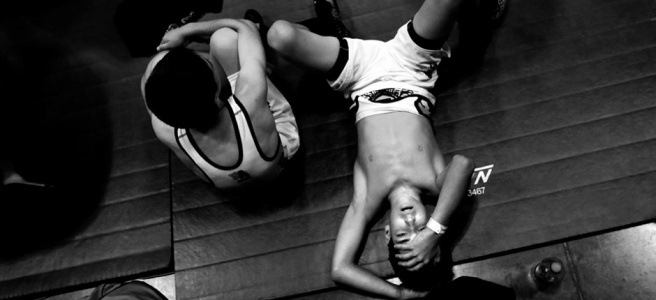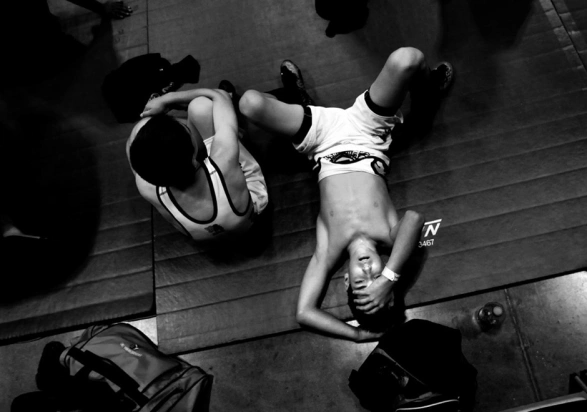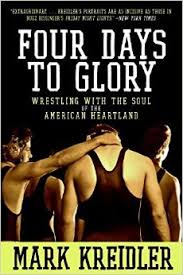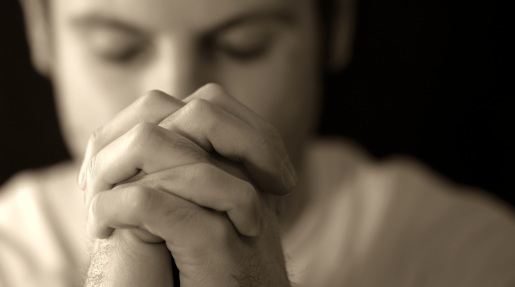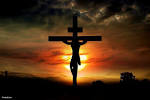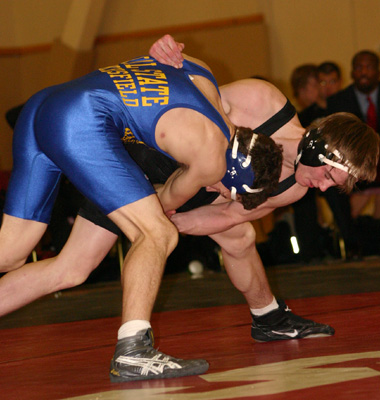
Recognizing God as a being of pathos is important for the following reason: We obtain the significance of our pathos, and the power of our passion, from God Himself; and it’s modeled in the grief and compassion described in the Bible that motivated God to send His one and only Son, as well as in the passion of Jesus Christ in the course of His living, suffering, dying, and His eventual resurrection. In short, God is the focus and example of our pathos and passion. If we are to live as God’s icons, then part of this involves reflecting the genuine pathos of God: His anger directed at sin, His grief for all those who have fallen into the grasp of sin, His love and compassion which inspired His redemptive purposes, and His joy for those who run to His arms.
Jeremy Doyle
I met Jeremy Doyle when I made the journey out West to California State University in Bakersfield on a small wrestling scholarship. He was a sophomore from San Diego who loved wrestling and wanted to continue competing.
Jeremy wasn’t highly recruited. There were no state titles to his name, nothing of particular note that would have colleges pressing for his commitment to their program. So, his decision to continue wrestling in college wasn’t necessarily bolstered by great success during his high school career. His decision was the product of a sincere passion for the sport and a desire to forge onward into the future as a competitor – a future that, through hard work and determination, might deliver success at the college level.
I had never met anyone like Jeremy. He had a captivating personality alongside a strong and resolute focus. He was the type of person who made you better just by being around him, no matter the context.
Jeremy was one of the hardest workers in the wrestling room. He never took a half-hearted approach to his training, and he pushed those who appeared to be lacking in effort. He wasn’t in the starting lineup, but he trained like a leader who was carrying his team toward victory. And yet, at the same time, Jeremy was also full of joy – always smiling, always laughing. He seemed to live as if each day was a gift.
Jeremy and I connected right away; which was good, because I was worried about life on my own for the first time, especially as a young man of faith who needed some guidance and direction. And Jeremy wasn’t shy from expressing his love for Jesus from the moment I met him. He immediately told me about a weekly wrestling team Bible study that he and his roommates held at their house. And when I shared that I played the guitar and could sing, Jeremy propelled me into leading worship to open up each Bible study session.
He had a tenacious approach to his faith. When he wasn’t wrestling or studying, he put his time and energy toward something else of meaning. And from this emerged a heart of service. Jeremy was a volunteer with Young Life – a nationwide Christian ministry that also had influence in the Bakersfield area. The main focus of this particular ministry was a middle school in Bakersfield that included kids who – many of them – didn’t have the greatest home situation or positive influence in their lives. The leaders of the Young Life group would reach out to the kids during the week – have lunch with them at school, or play with them during recess – and each week, the kids were invited to Young Life for an evening of fun activities and a little message of faith.
One day, after wrestling practice, Jeremy asked if I would be interested in grabbing my guitar and attending his Young Life volunteer meeting in order to lead the group through a time of worship. I would do anything for Jeremy; so, I agreed. That evening, with guitar in hand, I joined Jeremy at the Young Life meeting.
When the meeting ended, and after I led the group through a few songs, I realized that Jeremy had volunteered me to be a part of Young Life. While I was initially caught off guard, I nonetheless went along with it. If anything, it would be an opportunity to spend more time with Jeremy.
So, every week I volunteered with Jeremy at Young Life. And each week I saw more of Jeremy’s genuine heart. He really cared about these kids; and he was great with them. He made them feel valuable; he made them feel special. He made them feel like he wouldn’t want to be anywhere else in the world. And as I personally got to know the kids who came each week, I realized just how important this time was. These kids needed this time. Maybe the little messages of Jesus and His Church fell on deaf years; but at the very least, they would associate their time at Young Life each week with security, fun, love and care. And perhaps this association, and the little seeds of faith that were planted, would eventually take root later in life.
This time each week with Jeremy meant that I was able to enjoy late night drives with him on our way home – listening to music under the Bakersfield night sky, or engaging in a conversation about God that would send both of our minds in a whirlwind of wonder. And one night I was feeling a bit perplexed by Jeremy’s constant positivity and proactive drive to serve others. I honestly didn’t understand where it came from. At the time, I was struggling to keep up with school and wrestling, as well as finding it hard to sustain any real personal drive of my own. In short, I was exhausted. So, I asked Jeremy, “Why are you so happy all the time? And where do you find the energy to do everything you do?”
Without a hint of pause, Jeremy proceeded to tell me that he believed it his duty to reflect the heart of God. He said that, if God loved him so much that He died on the cross, then that’s some intense love. He said that the Bible says God longs for all to come to Him, and grieves for those who don’t. And if God grieves for those who have yet to experience His love, then he shares in that grief. He said that, in feeling the genuine love of God, he can’t help but be moved to action. And he didn’t find this to be some sort of intrusive obligation, either. Instead, it was something that he wanted to do. “Plus,” Jeremy said, “God is an awesome God! I know He’s awesome…why wouldn’t I want others to know how awesome He is?”
Jeremy’s response was good enough for me. After all, I knew he really meant it. I could see it. I saw it every time I was around him. Jeremy was a man after God’s own heart.
The heart of God
When we talk about the pathos of God, what we’re really talking about is the heart of God. And Jeremy showed me what it’s like to be in tune with and inspired-to-action by the heart of God. It’s not something forced; it just flows like an outpouring of something that already exists inside.
As God’s icons, this must be true of us. Maybe it takes time for it to reflect a natural outpouring of our lives. But it should at least be our personal initiative to be in tune with and inspired-to-action by the heart of God.
(The above is a sample from a chapter in Icon: The Value of Faith and Wrestling. To read the rest of the chapter, check out the book)

Michael Fessler is a writer, speaker, and author of the bestsellers Faith and Wrestling and The Wrestler.

BUY NOW ON AMAZON https://www.amazon.com/Icon-Value-Wrestling-Michael-Fessler/dp/0692048855/ref=asap_bc?ie=UTF8
